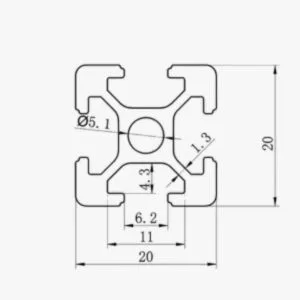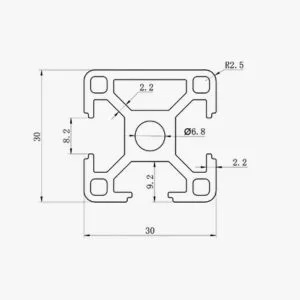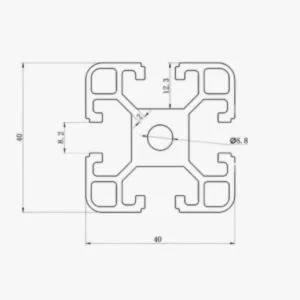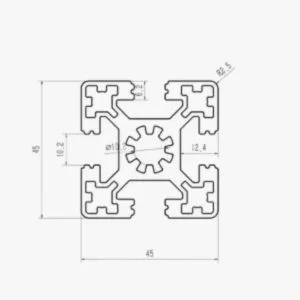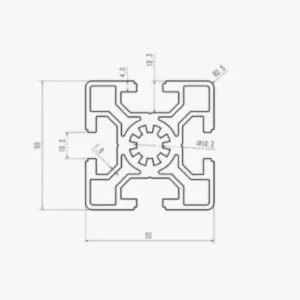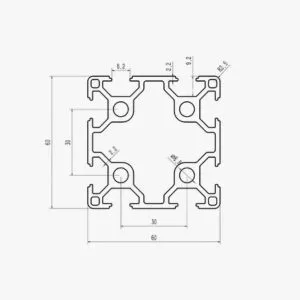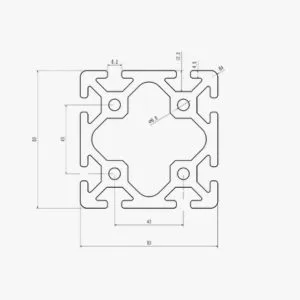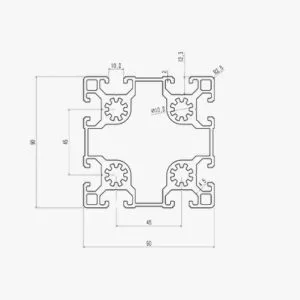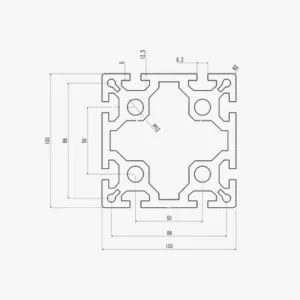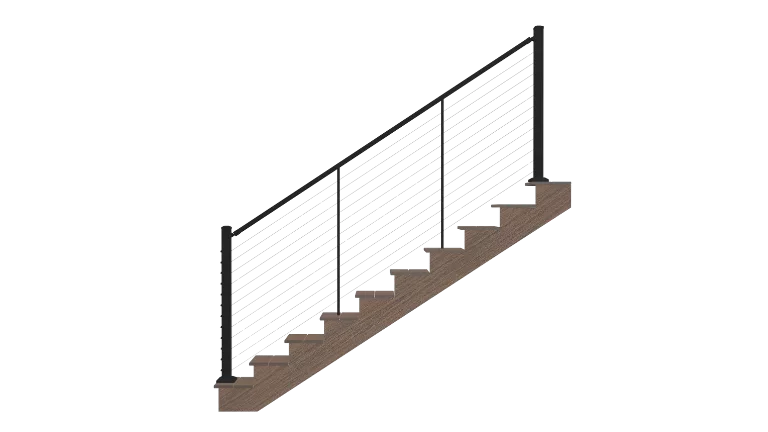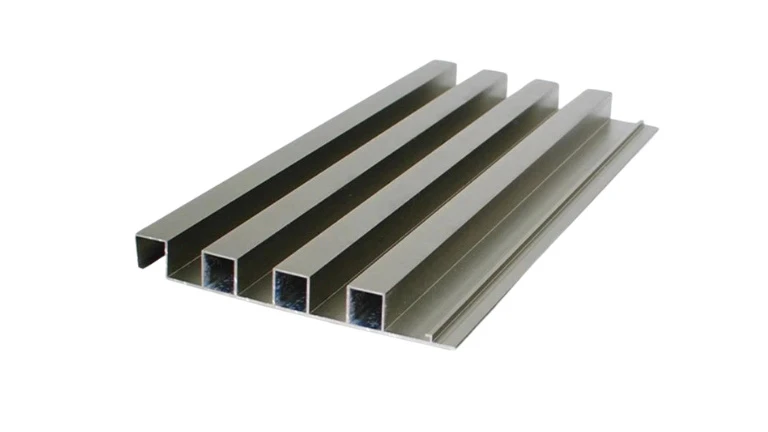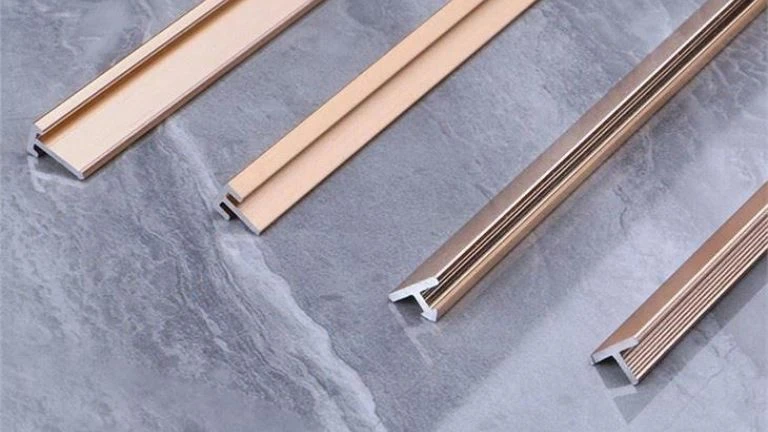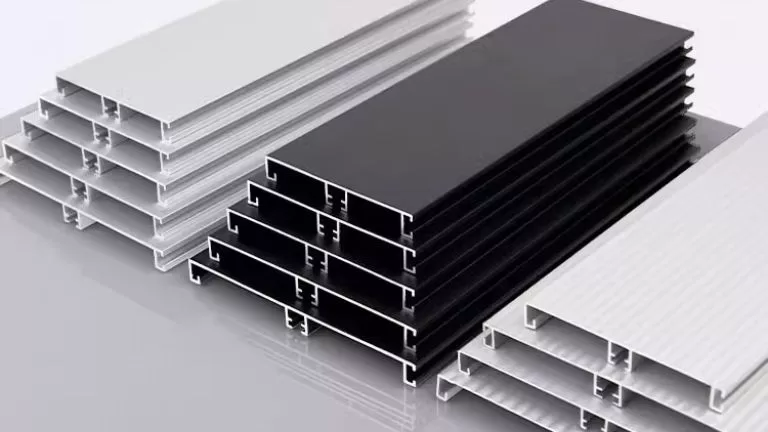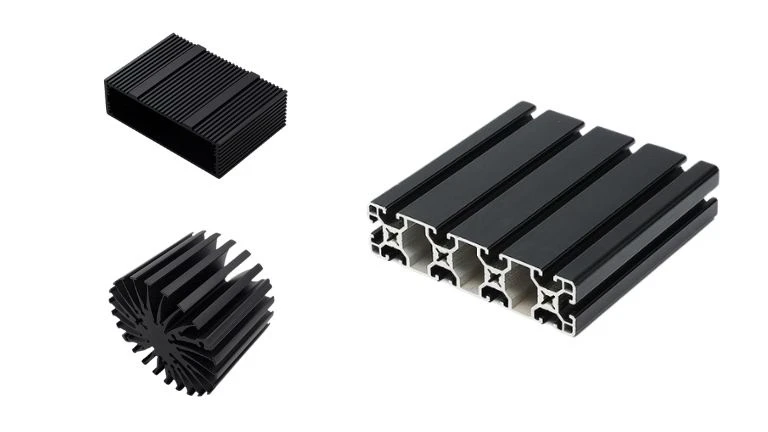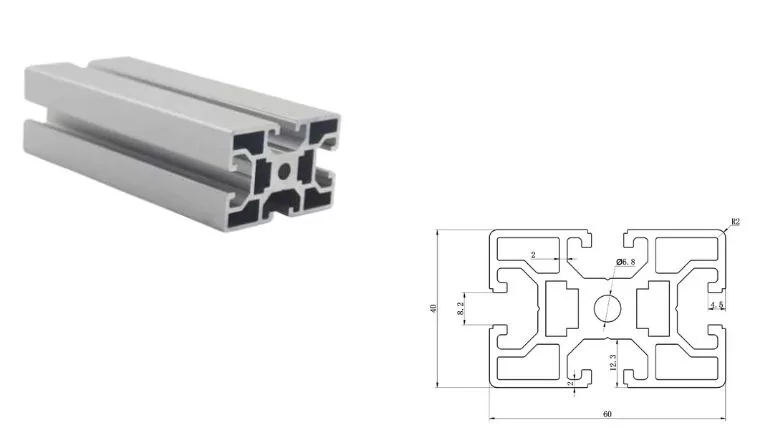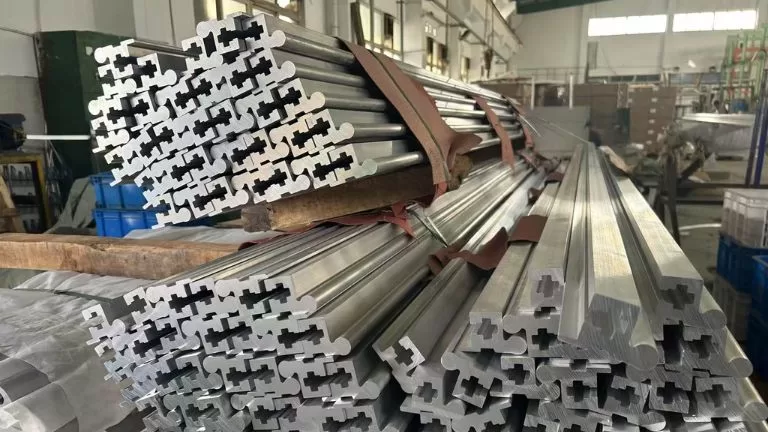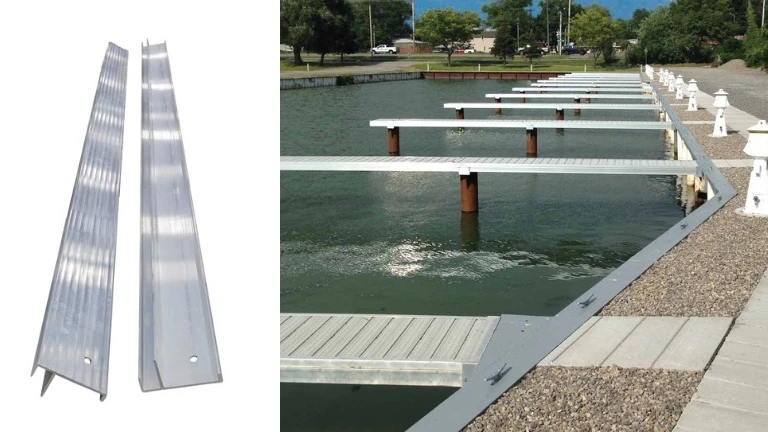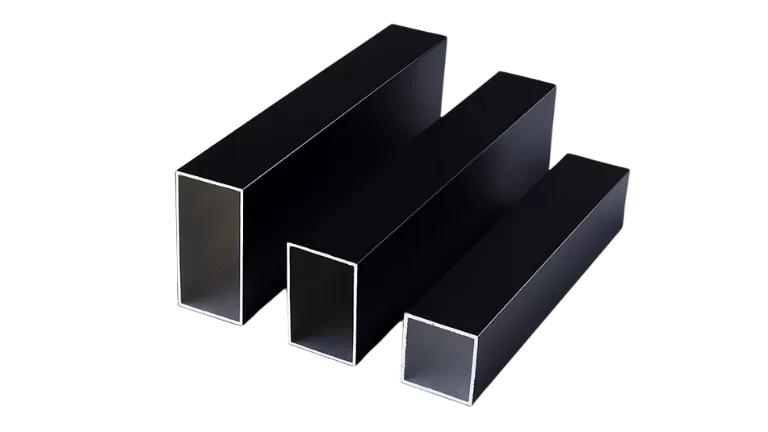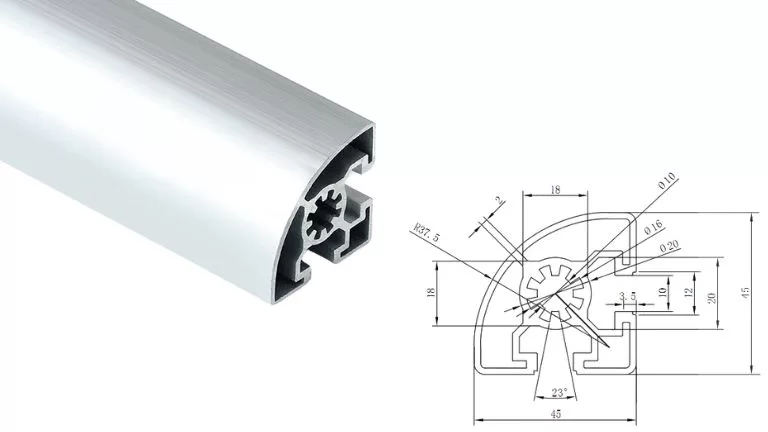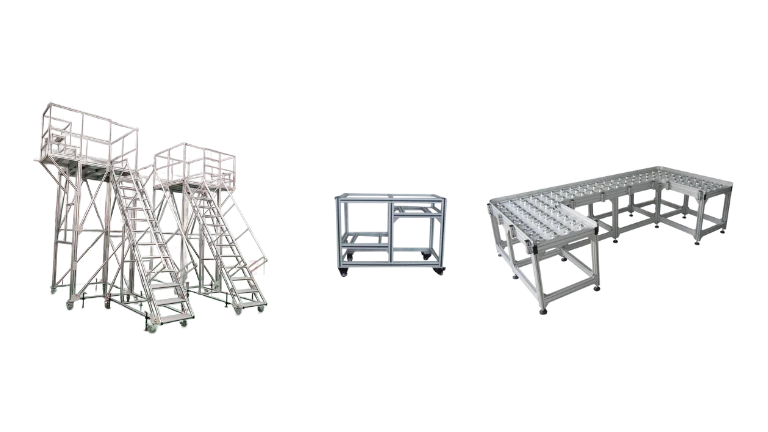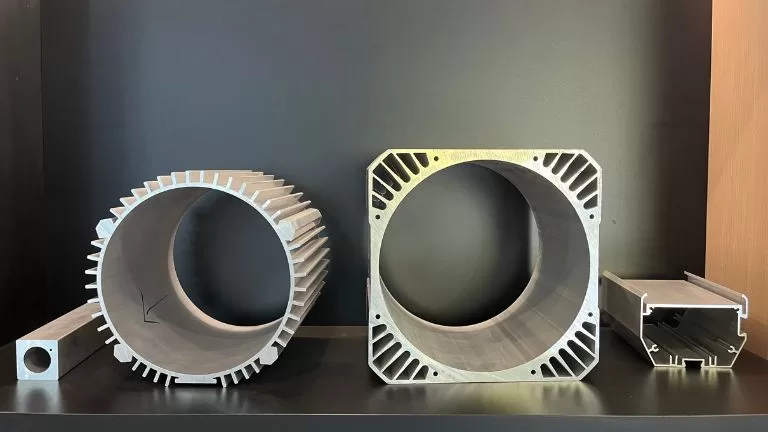Custom Extruded Aluminum Partition Sections Manufacturing
Overview
Aluminum partition sections are essential components widely used in creating modular partitions for both office and residential spaces. These partitions provide a flexible, lightweight, and durable solution, making them a popular choice when compared to traditional materials like wood or steel. The advantages of using aluminum include its corrosion resistance, ease of installation, and minimal maintenance requirements, which altogether contribute to its cost-effectiveness and sustainability.
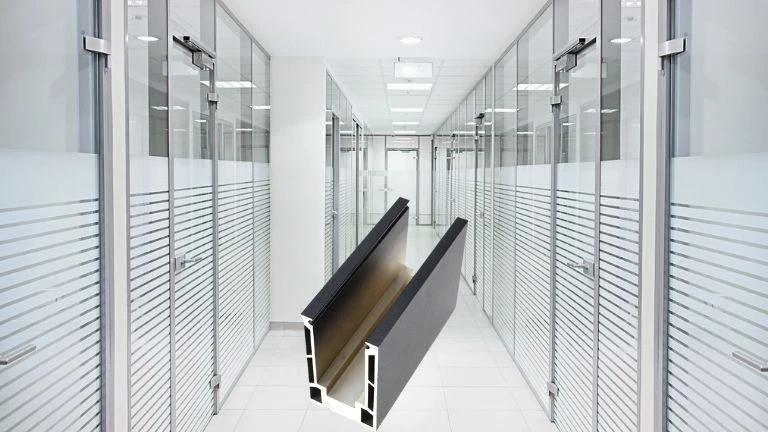
Custom Aluminum Profile for Partition
HTS NEW MATERIALS is a leading manufacturer of aluminum extrusion profiles in China. With over 40 production lines and the largest 6000-ton extrusion press, we offer extensive capabilities in mold design and processing, along with comprehensive surface treatment and advanced machining services. We can create molds based on your drawings or samples within approximately 7 days. The production timeline varies with volume; for example, a 26-ton order typically takes 10-20 days.
Aluminium Section for Glass Partition
Glass partition profiles are commonly used to create transparent and open spaces in modern interiors. They come in variations such as single glazed and double glazed systems. Single glazed profiles feature a single layer of glass with aluminum frames, ideal for areas where visibility and natural light are key. Double glazed profiles incorporate two glass layers, offering better sound insulation and thermal efficiency. Some systems also include integrated blinds, providing adjustable privacy and light control.
Aluminium Profile for Signal Glass Partition
The front view of a single-glazed partition looks virtually identical to that of a double-glazed partition, while the back offers a stronger sense of depth. It can accommodate glass of varying thicknesses and offers the option of aluminum profiles in different colors. Additionally, finishes such as brushed effects or wood grain effects are available for selection.
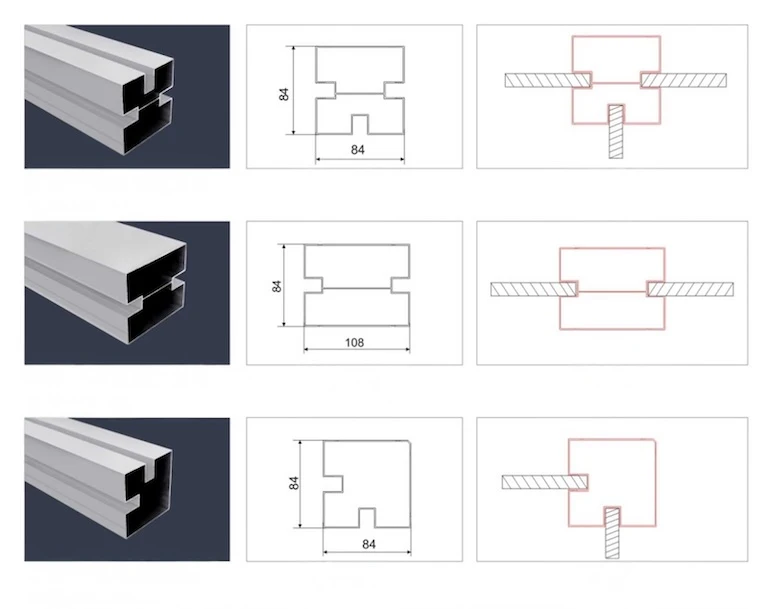
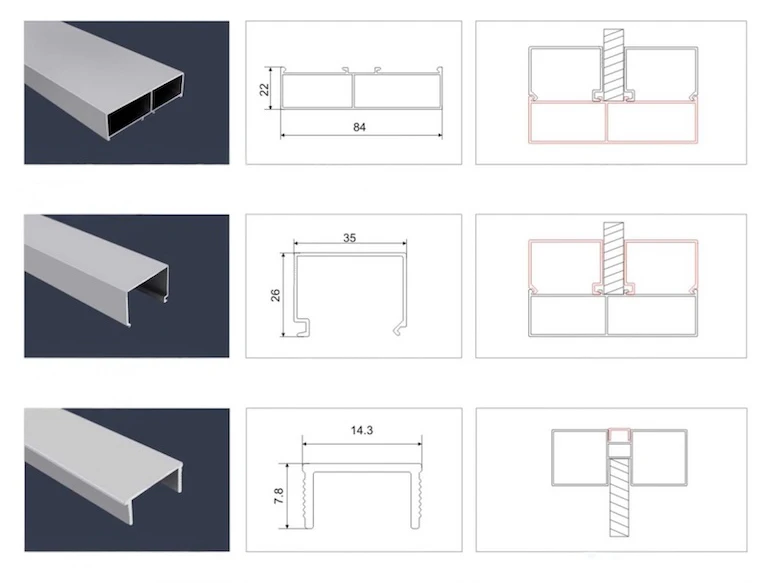
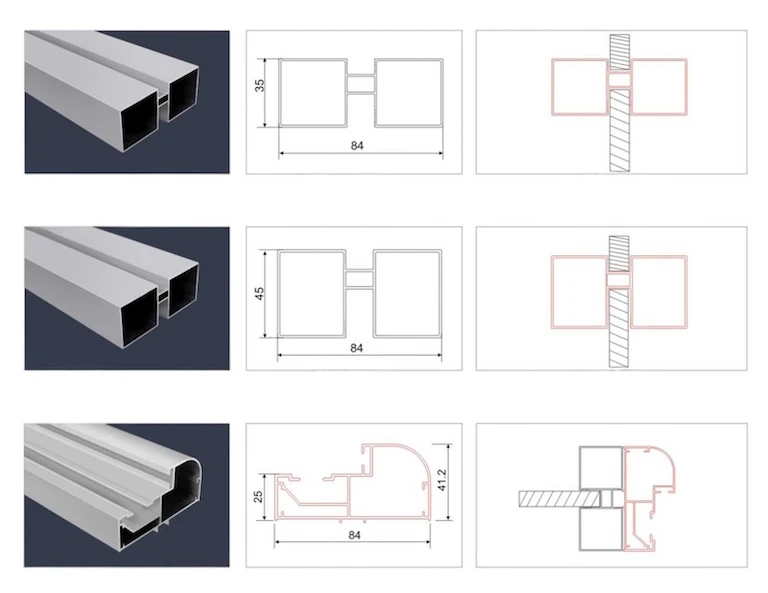
Aluminium Profile for Double Glass Partition
Double-glazed glass partitions not only provide excellent visual effects but also enhance indoor, creating an open. The good sound insulation effect (45-54dB) ensures that you are free from disturbances. Customizable frames of different widths better match manual or electric blinds, allowing to work in a quiet environment.
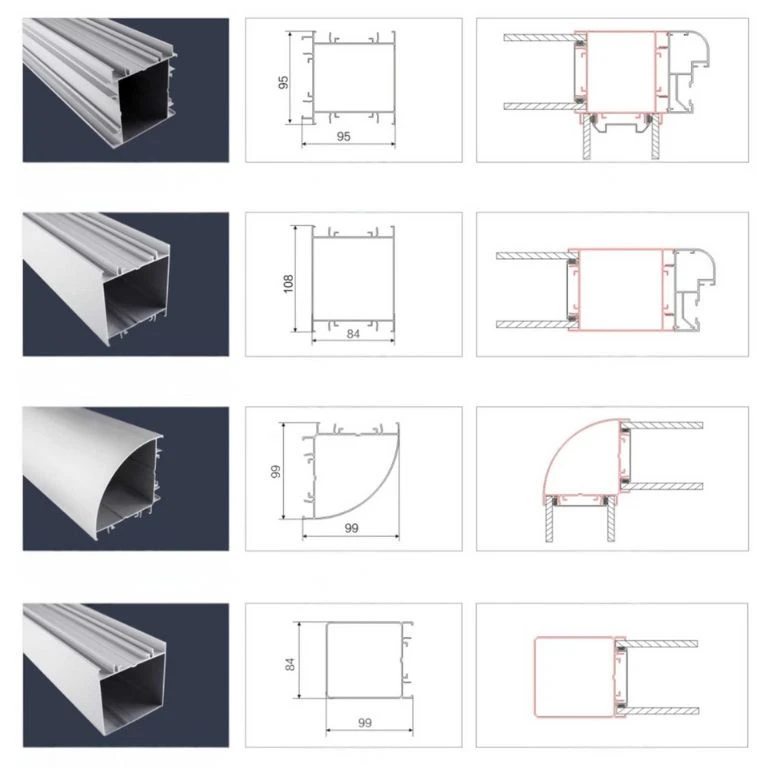
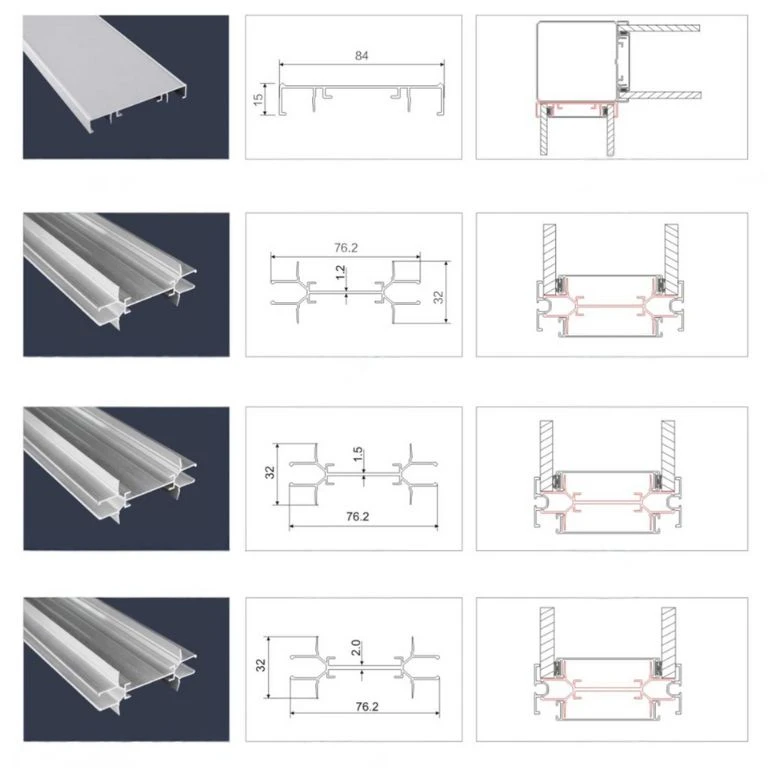
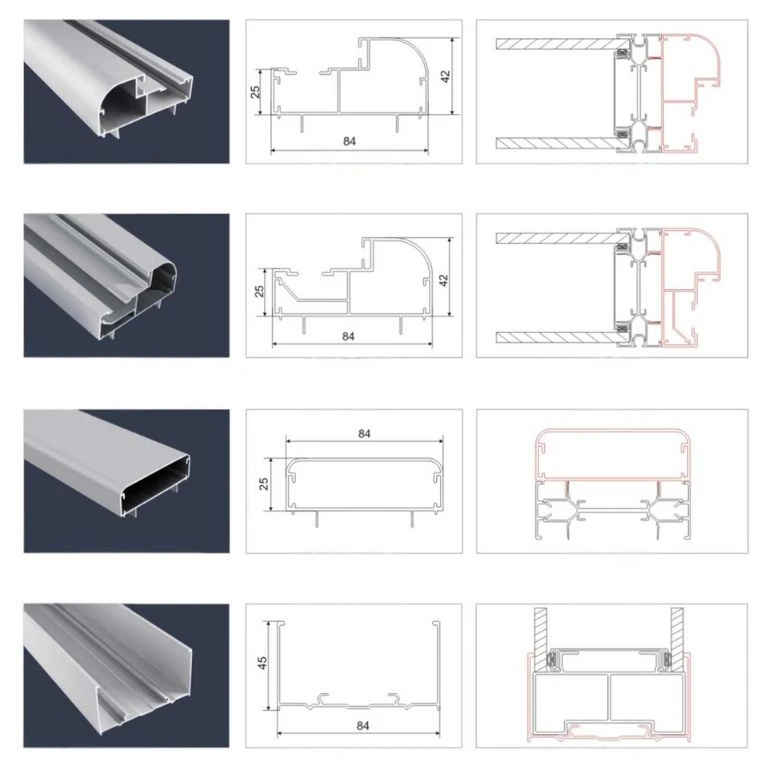
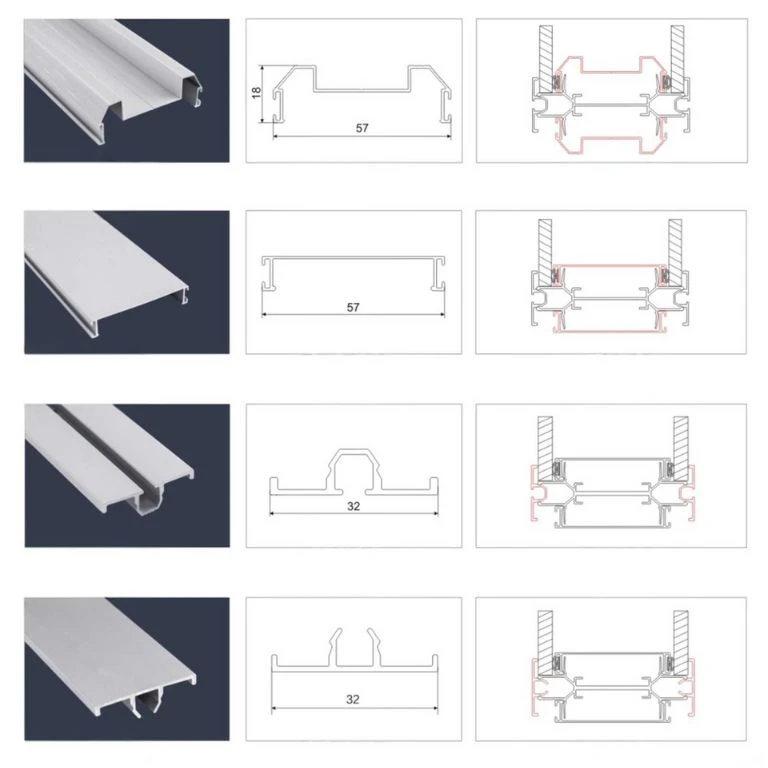
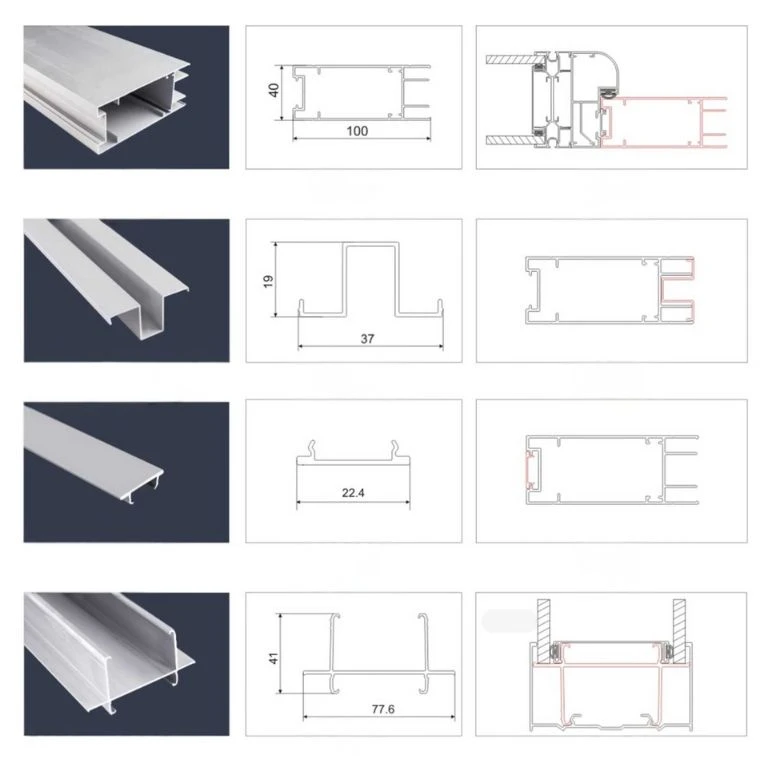
T-Slot Aluminum Profiles for Partition
T-slot aluminum profiles offer a highly modular and flexible system for constructing custom partitions. The profiles can be easily assembled and reconfigured, allowing for quick adjustments to accommodate changing space requirements. This versatility makes T-slot profiles suitable not only for partitions but also for building frameworks, workstations, and enclosures across industrial and commercial settings.
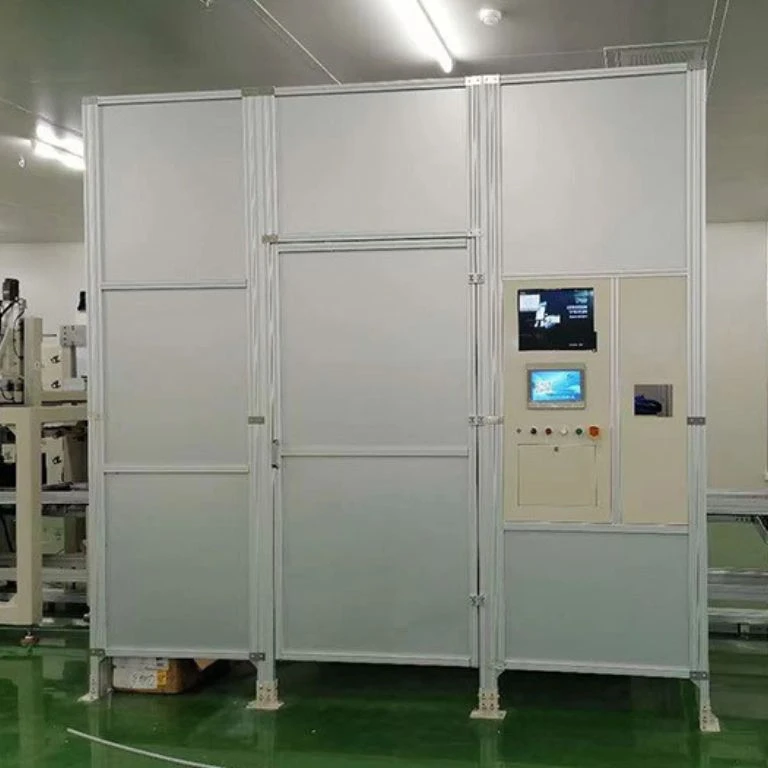
Aluminum Tube for Screen Partitions
Aluminum tubes are an excellent choice for partitions, offering versatility in dividing spaces while maintaining visual openness and airflow. Available in round or square profiles, these aluminum tubes can be customized in a variety of colors, including realistic wood grain finishes, to enhance aesthetic appeal. Ideal for creating dynamic and visually engaging environments, aluminum tube partitions are perfect for spaces such as lobbies and collaborative work areas.
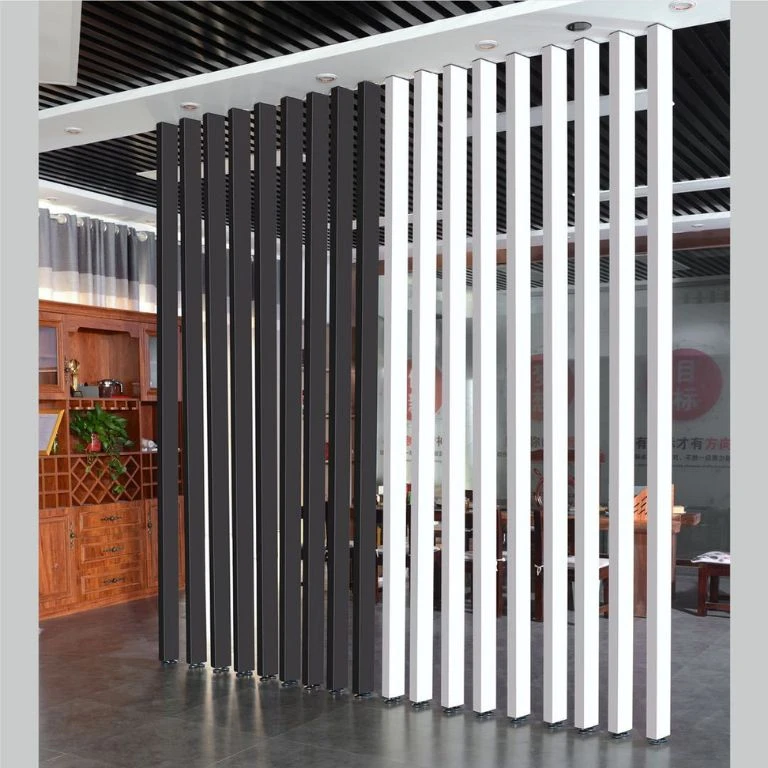
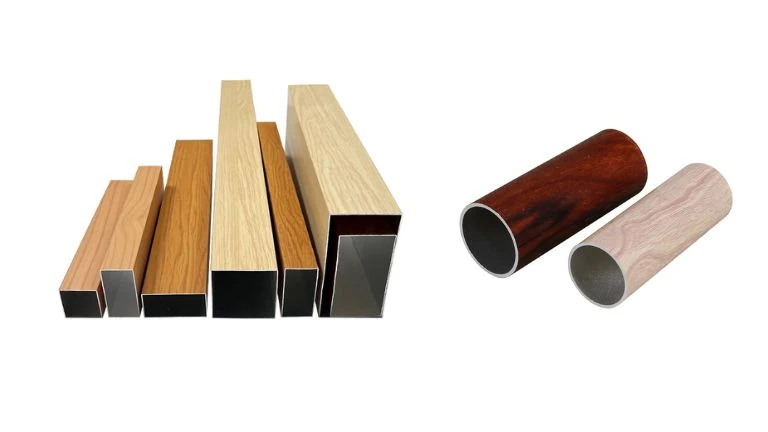
Custom Your Aluminum Profile
Our aluminum extrusion factory, located in Nanchang, Jiangxi Province, covers an extensive area of 30,000 square meters and is home to a dedicated workforce of over 120 skilled individuals.
Advanced Extrusion Lines
Boasting over 30 high-precision extrusion production lines from Japan and Germany, we ensure unmatched quality and efficiency.
Custom Mold Design and Processing
We tailor-make molds based on client designs or samples, providing prototypes for confirmation to meet precise specifications.
Comprehensive Surface Treatment Techniques
Our surface treatment capabilities include anodizing, electroplating, sandblasting, powder coating, fluorocarbon painting, and wood grain transfer printing to enhance product durability and aesthetics.
Over Two Decades of Expertise
Since 2013, we have been manufacturing aluminum profiles, accumulating vast experience in producing a wide array of profiles for windows, doors, and various industrial applications.
Aluminium Profile Solutions
At HTS Aluminium, we pride ourselves on our ability to deliver custom aluminium profile solutions tailored to the unique needs of each client. Our bespoke services are grounded in a deep understanding of our clients’ visions, which we bring to life by transforming drawings or samples into precision-engineered aluminium profiles.
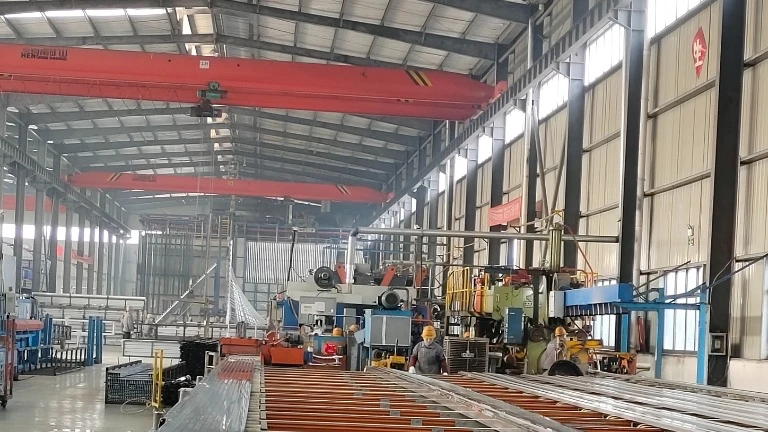
Precision Aluminum Extrusion Process
Our state-of-the-art manufacturing facility is equipped with advanced extrusion presses and precision cutting tools, allowing us to handle even the most complex profiles with exceptional accuracy. Our team of skilled technicians brings years of industry experience to the table, ensuring that every extruded aluminium profile meets the highest standards of quality and precision.
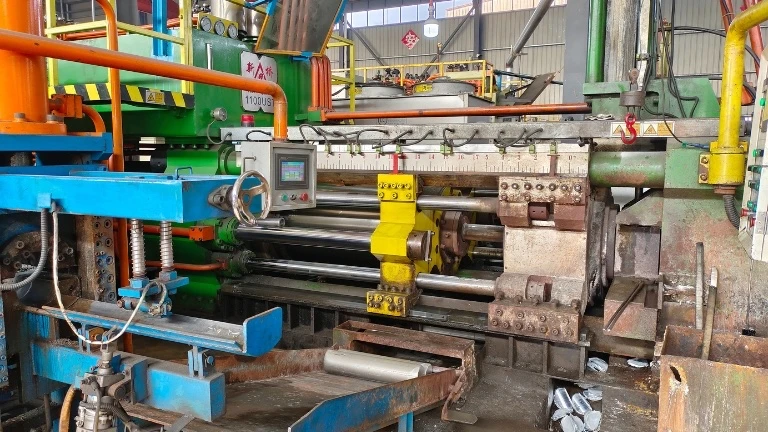
Design and Manufacture of Moulds
We at HTS Aluminium specialize in the design and manufacture of custom moulds based on client specifications. Once a mould is created, we conduct trial productions and send samples to our clients for confirmation. This meticulous process ensures that the final product perfectly aligns with our clients’ expectations.
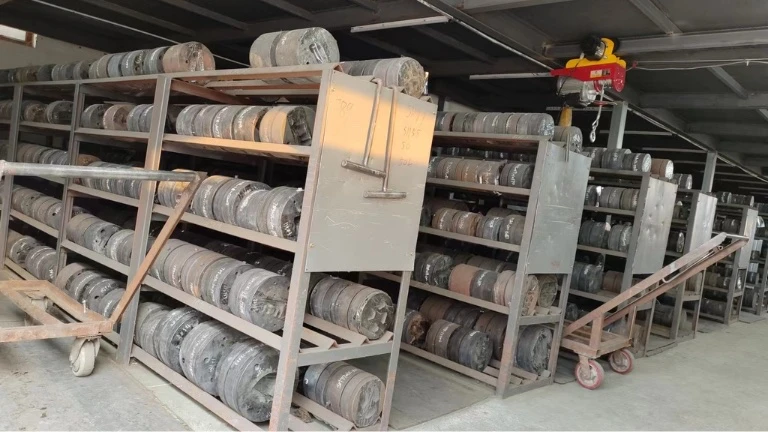
Material for Extruded Aluminum
Quality begins with the raw materials, and at HTS Aluminium, we use only the highest standard aluminium alloys for our extrusions. Our profiles are commonly crafted from a selection of industry-standard grades, each offering a balance of strength, durability, and corrosion resistance to meet various application requirements.
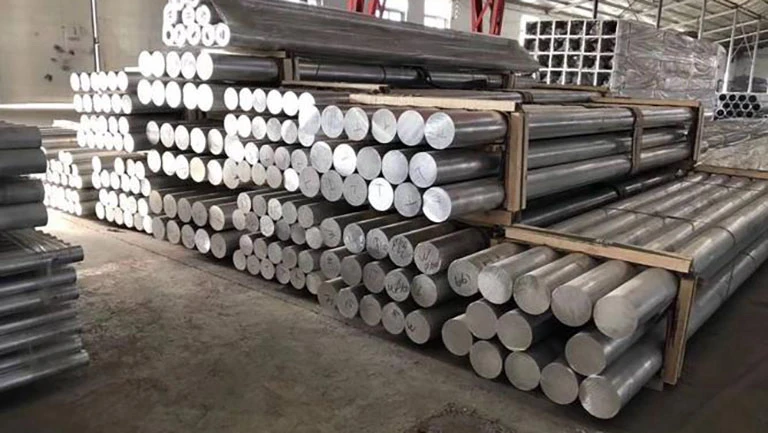

5052: Offers excellent corrosion resistance, good weldability, and moderate-to-high strength. It is a popular choice for marine and automotive applications.
Silicon (Si): 0.25% (Maximum)
Iron (Fe): 0.40% (Maximum)
Copper (Cu): 0.10% (Maximum)
Manganese (Mn): 0.10% (Maximum)
Magnesium (Mg): 2.2-2.8%
Chromium (Cr): 0.15-0.35%
Zinc (Zn): 0.10% (Maximum)
Remaining Balance: Aluminum (Al)
6061: A versatile alloy with good mechanical properties, weldability, and corrosion resistance. It is widely used for structural applications and in the automotive industry.
Silicon (Si): 0.40-0.80%
Iron (Fe): 0.70% (Maximum)
Copper (Cu): 0.15-0.40%
Manganese (Mn): 0.15% (Maximum)
Magnesium (Mg): 0.8-1.2%
Chromium (Cr): 0.04-0.35%
Zinc (Zn): 0.25% (Maximum)
Titanium (Ti): 0.15% (Maximum)
Remaining Balance: Aluminum (Al)
6063: Often referred to as an architectural alloy, it has a smooth surface finish and is commonly used in window and door frames.
Silicon (Si): 0.20-0.60%
Iron (Fe): 0.35% (Maximum)
Copper (Cu): 0.10% (Maximum)
Manganese (Mn): 0.10% (Maximum)
Magnesium (Mg): 0.45-0.90%
Chromium (Cr): 0.10% (Maximum)
Zinc (Zn): 0.10% (Maximum)
Titanium (Ti): 0.10% (Maximum)
Remaining Balance: Aluminum (Al)
7075: One of the strongest aluminum alloys available, with zinc as the main alloying element. It is used in applications where strength is critical, such as in aerospace and military components.
Zinc (Zn): 5.1-6.1%
Magnesium (Mg): 2.1-2.9%
Copper (Cu): 1.2-2.0%
Chromium (Cr): 0.18-0.28%
Silicon (Si): 0.40% (Maximum)
Iron (Fe): 0.50% (Maximum)
Manganese (Mn): 0.30% (Maximum)
Titanium (Ti): 0.20% (Maximum)
Other elements: Each 0.05% (Maximum), Total 0.15% (Maximum)
Remaining Balance: Aluminum (Al)
Heat Treatment Options
Our aluminium profiles can undergo a range of heat treatment options to enhance their properties. From T5 to T6 treatments, we tailor the process to achieve the desired level of hardness, strength, and elasticity. Each treatment option is designed to bring out the best in the material, ensuring that the final product stands up to the demands of its application.
T5 Heat Treatment
Process: Cooled from an elevated temperature shaping process and then artificially aged.
Characteristics: Increases the strength of the aluminum by accelerating the aging process, resulting in a material that has moderate strength and good formability.
T6 Heat Treatment
Process: Solution heat-treated and then artificially aged.
Characteristics: Provides a significant increase in strength compared to T5 by altering the microstructure of the aluminum. This results in a high-strength material with good machinability and fair formability.
Machine Process after Extrusion
At our factory, we offer a wide range of machining services to enhance the functionality of our aluminum profiles. Our capabilities include precision cutting for exact lengths, punching and threading for modifications, and slotting for component compatibility. We also specialize in bending and welding for complex assemblies and robust structures. Additionally, our assembly services ensure complete, ready-to-use components.
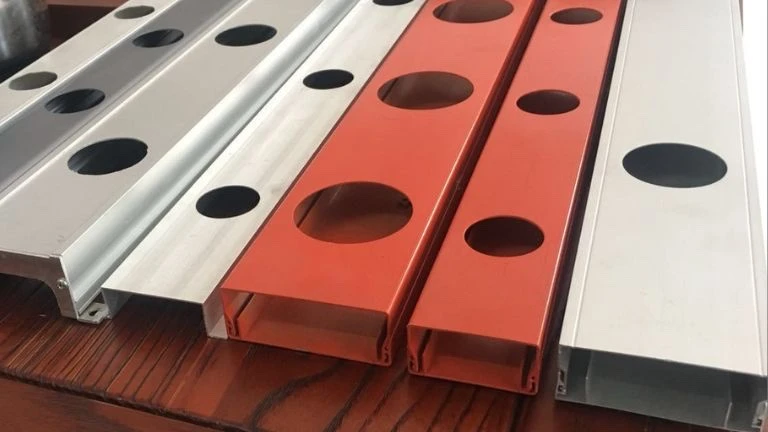

Punching
Punching, involves applying high force to create holes, indentations, or other shapes in aluminum profiles. This process is essential for creating ventilation openings, mounting slots, or lightweight structures with uniform patterns.
Drilling
Drilling creates necessary holes in aluminum profiles, allowing for the attachment of components with bolts or other fasteners, crucial for modular constructions.
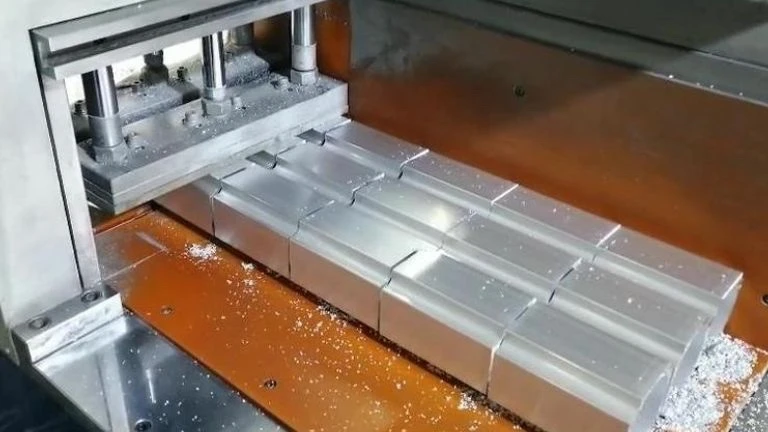
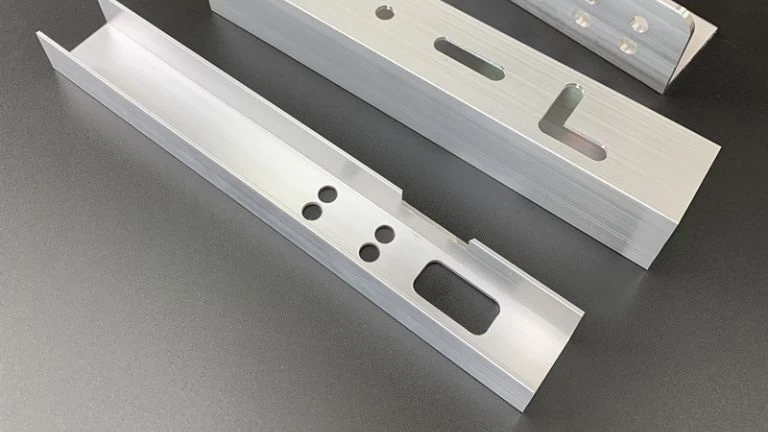
Cutting
Precision cutting is crucial to ensure that each aluminum profile is trimmed to exact length specifications, facilitating a perfect fit in final assembly.
Milling
Milling involves the removal of aluminum material using rotary cutters to achieve desired shapes and surfaces. This process is perfect for creating slots, grooves, and complex contours, enhancing the functionality and precision of aluminum profiles.
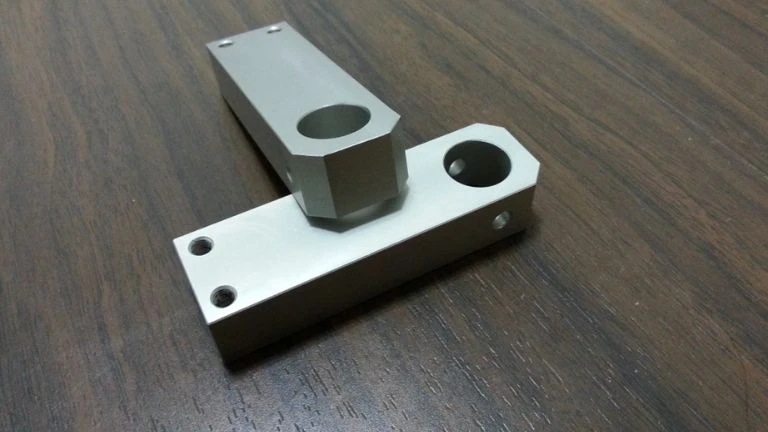
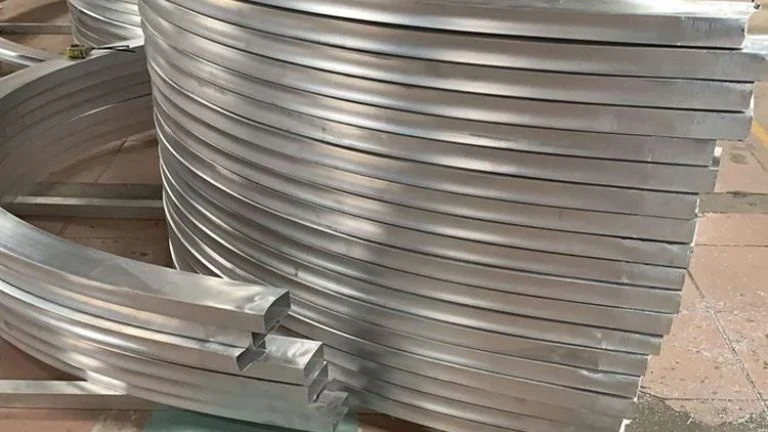
Tapping
Tapping adds threads to the drilled holes in aluminum profiles, enabling the secure fastening of bolts and screws, which is vital for assembly and maintenance.
This technique shapes aluminum profiles into desired curves or angles, maintaining material integrity and is essential for both architectural and functional structures.
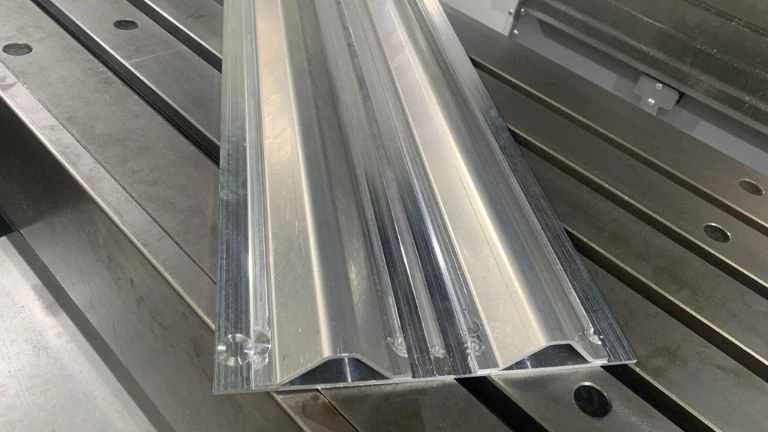
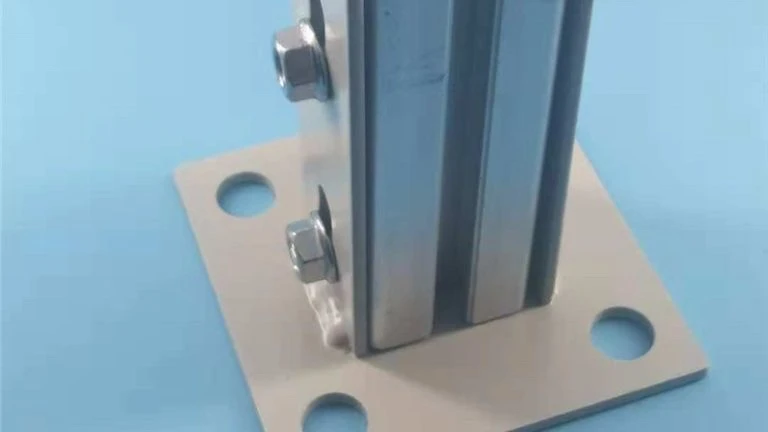
Welding
Welding joins multiple aluminum sections into a solid unit, providing a durable bond essential for structural applications.
Assembly
Our assembly services involve the strategic joining of various components using bolts and other fasteners to create complex assemblies, ensuring functionality and structural integrity.
Aluminum Profile Surface Treatment
To ensure the longevity and aesthetic appeal of our telescopic aluminum profiles, we offer a range of surface treatments including:
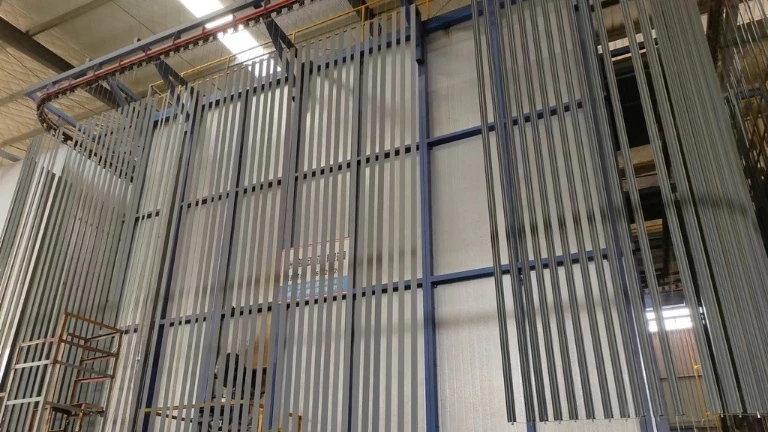
Anodizing: The Protective Shield
What is Anodizing? Anodizing is an electrochemical process that thickens and toughens the naturally occurring protective oxide on the surface of aluminum profiles. This treatment enhances corrosion resistance and wear resistance, making the aluminum surface harder and more durable.
Key Advantages
Improved corrosion resistance
Enhanced surface hardness
Aesthetic appeal with a variety of color options
Better adhesion for paints and primers
Increased thermal insulation properties
Electroplating: The Metal Finish
What is Electroplating? Electroplating involves the deposition of a metal coating on the extruded aluminum profile. This process can be used to improve corrosion resistance, increase surface hardness, and add a decorative finish.
Key Advantages
Enhanced corrosion resistance
Decorative finishes with various metal types
Increased surface hardness
Improved wear resistance
Sandblasting: The Texture Artist
What is Sandblasting? Sandblasting is a mechanical process where abrasive materials are blasted onto the aluminum surface at high velocity to clean or modify its texture. This is often used to prepare the surface for further treatments or to achieve a specific aesthetic look.
Key Advantages
Uniform surface finish
Improved surface cleanliness
Enhanced paint and coating adhesion
Aesthetic texture options
Powder Coating: The Colorful Protector
What is Powder Coating? Powder coating is a dry finishing process where a powder material is electrostatically applied to the aluminum surface and then cured under heat to form a skin-like coating. This method provides a durable, uniform, and attractive finish.
Key Advantages
Wide range of color options
Uniform, durable finish
Excellent resistance to chipping, scratching, and corrosion
Eco-friendly process with minimal VOC emissions
Fluorocarbon Painting: The Weather Warrior
What is Fluorocarbon Painting? Fluorocarbon painting involves applying a fluorocarbon resin-based paint to the aluminum profile, which offers exceptional weather resistance, making it ideal for outdoor applications.
Key Advantages
Outstanding weather resistance
Excellent color and gloss retention
Resistance to UV radiation and corrosion
Suitable for extreme environmental conditions
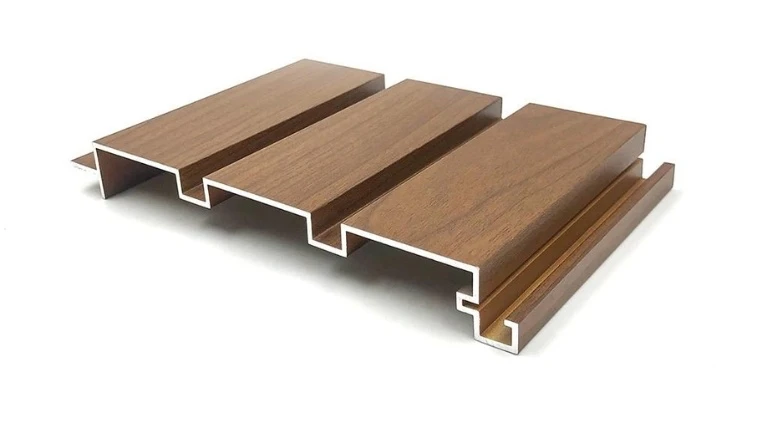
Wood Grain Transfer: The Natural Look
What is Wood Grain Transfer? Wood grain transfer is a process where a wood grain pattern is applied to the aluminum profile through heat transfer. This provides the natural appearance of wood while maintaining the benefits of aluminum.
Key Advantages
Aesthetic appeal of natural wood
Durable and maintenance-free
Resistance to corrosion and weathering
Ideal for architectural applications where wood-like finish is desired
Custom Aluminum Extrusion Process
At HTS Aluminum Profiles, we specialize in delivering custom aluminum extrusion solutions tailored to your specific needs. Here’s a step-by-step guide to our customization process:
Step 1: Initial Consultation
Your journey begins with an initial consultation where we discuss your project requirements. We encourage you to share your design concepts, application needs, and any critical parameters that the aluminum profile must meet. This collaborative approach ensures that we fully understand your vision and objectives.
Step 2: Design and Engineering
Leveraging our extensive experience in aluminum extrusion, our skilled engineers work closely with you to refine your design. We consider factors such as the aluminum alloy grade, temper, and mechanical properties required for your application. Our team uses advanced CAD software to create precise technical drawings and 3D models of the proposed profile.
Step 3: Die Fabrication
Once the design is finalized, we proceed to manufacture the custom extrusion dies. Our precision die-making process ensures that the final profile will match your specifications with high accuracy. We employ state-of-the-art CNC machines to craft dies that can withstand the rigors of extrusion while maintaining tight tolerances.
Step 4: Aluminum Extrusion
With the dies ready, the actual extrusion process begins. We select the appropriate aluminum alloy and heat it to the precise extrusion temperature. The heated billet is then pressed through the die to create the custom profile. Our extrusion presses, ranging from 600 to 3600 tons, are capable of producing a wide range of profile sizes and shapes.
Step 5: Surface Treatment and Finishing
Following extrusion, the profiles undergo various surface treatments as per your requirements. Options include anodizing, electroplating, sandblasting, powder coating, fluorocarbon painting, and wood grain transfer printing. These processes enhance the profiles’ durability, corrosion resistance, and aesthetic appeal.
Step 6: Quality Assurance
Quality is at the heart of everything we do. Each custom aluminum profile is subjected to rigorous quality checks to ensure it meets ISO standards and our European quality certifications. We perform dimensional inspections, mechanical testing, and surface finish evaluations to guarantee that your profiles are delivered without defects.
Step 7: Packing and Delivery
After passing all quality inspections, the aluminum profiles are carefully packed to prevent any damage during transit. We use robust packaging materials and methods tailored to the profiles’ dimensions and your delivery preferences. Our logistics team then manages the safe and timely delivery of your custom aluminum profiles to your specified location.
Step 8: After-Sales Support
Our commitment to your satisfaction extends beyond delivery. We offer comprehensive after-sales support to address any concerns or additional requirements you may have. Our customer service team is always ready to assist you with any questions or feedback.
Partner with Us
We are committed to delivering precision-engineered aluminum profiles that meet the highest standards of quality. From initial design to final delivery, we provide a seamless and personalized experience, ensuring that your custom aluminum solutions are produced efficiently and to your satisfaction.
Take the next step in your project and contact us for a consultation on your custom aluminum extrusion needs.
